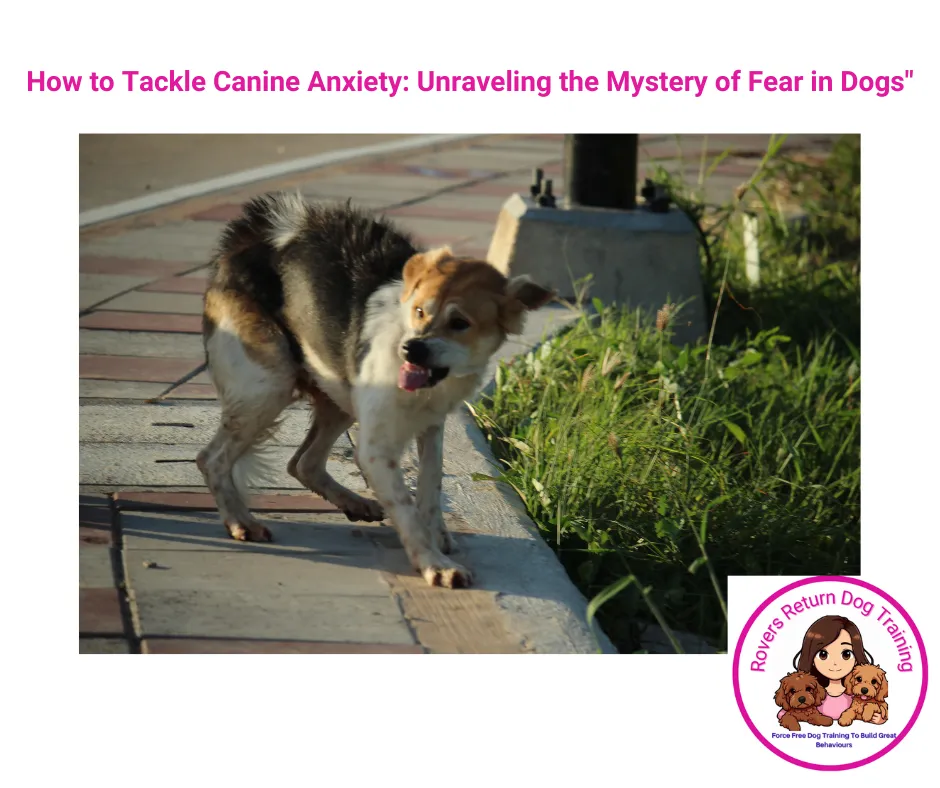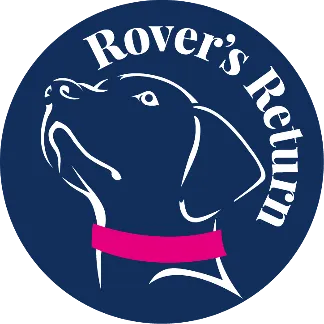Book a FREE 1:1 Assessment Call By Clicking HERE
Specialising In Dog Reactive Behviour
Accredited by APDT, ABTC and UK DOG Behaviour and Training Charter
Qualified and Experienced
Force Free Trainer and Behaviourist
Dog Training Leicestershire Educational Blogs

How to Tackle Canine Anxiety: Unraveling the Mystery of Fear in Dogs
“In the face of fear, the body undergoes rapid changes. The fight-or-flight response is activated, releasing adrenaline and cortisol, priming the individual for swift action .” - Sam Hughes
How to Tackle Canine Anxiety: Unraveling the Mystery of Fear in Dogs
Introduction:
Fear, an innate and powerful emotion, has played a pivotal role in survival throughout evolution. While fear is a natural response to perceived threats, its impact on behaviour goes beyond the primitive fight-or-flight response. In this blog, we'll explore the multifaceted ways in which fear influences our thoughts, actions, and decision-making.

The Neurobiology of Fear:
At the core of the fear-behaviour relationship lies the intricate dance within our brain.
The amygdala, a small almond-shaped structure, takes centre stage in processing and responding to fear stimuli.
When faced with a threat, the amygdala triggers a cascade of physiological responses, preparing the body to confront or escape the danger.
Fight or Flight: Immediate Responses to Fear:
In the face of fear, the body undergoes rapid changes. The fight-or-flight response is activated, releasing adrenaline and cortisol, priming the individual for swift action. This primal instinct served our ancestors well in life-threatening situations, ensuring their survival.
Anxiety and Chronic Fear:
While acute fear responses are crucial for survival, chronic fear and anxiety can have detrimental effects on behaviour. Prolonged exposure to fear can lead to heightened stress levels, impacting decision-making, cognitive functions, and overall mental well-being. Individuals trapped in a cycle of chronic fear may become paralyzed, unable Avoidance Behaviour:
One common behavioural response to fear is avoidance. This is where much of the behaviour we see in our dogs stem from. They cannot cope with the situation fearing the presence of the trigger or feared situation, dogs modify their behaviour to steer clear of potential threats. Their behaviourmay seem out of context to us, but they truly fear the situation that they are in.
Impact on Social Behavior:
Dogs are essentially social animals and love to interact with people and their species, but when crippled with fear of interaction it will impact on their ability to socialise with the environment in general and not just triggers that affect their behaviour
Learned Behaviours and Conditioning:
Fear is cemented through experiences and conditioning. When a behaviour works to keep them safe the brain stores the success of the event and when faced with a similar event the brain will drive the same response. This is a reflex response and not a conscious thought.
Overcoming Fear: A lenghty yet rewarding experience
When you understand their behaviour and help them feel safe and manage triggers you can begin to counter condition their reactions. In time when you have succesfully identified the triggers and emotions driving their behaviour and implemeted a reward based training program
Conclusion:
Fear is an integral part of life experience, shaping behaviour in profound ways. Understanding the intricate interplay between fear and behaviour opens the door to dog training and empowerment. By acknowledging and confronting fears, individuals can navigate life with greater resilience, fostering personal growth and meaningful connections with others
Highly Qualified Behaviourist
Accredited by APDT, ABTC and UK DOG Behaviour and Training Charter
Accredited Scentwork Instructor
Force Free Trainer and Behaviour
Force Free Trainer and Behaviour
Accredited Scentwork Instructor
Accredited by APDT, ABTC and UK DOG Behaviour and Training Charter
Highly Qualified Behaviourist
Contact Us
Sam: 07725 802995
You can contact us via Live Chat button at the bottom of the screen or the contact box to the right.
You can also book one of our services online using the View Dates buttons under the service you require.
© 2023 by Rovers Return Dog Trainers Academy - Force Free Dog Training Lutterworth, Broughton Astley, Leicestershire, Hinckley, Nuneaton, Stoney Stanton, South Kilworth, Ullesthorpe
Privacy Policy | Terms and Conditions | Terms and Conditions of Services | Sitemap



Facebook
Instagram
X
LinkedIn
Youtube
TikTok